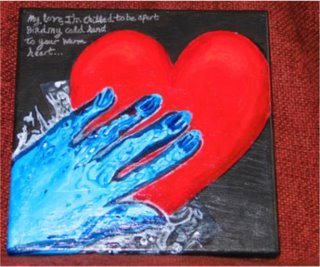A liberal goes a long way posts about the new political division between cosmopolitans and chauvinists. And quotes a
blog post by David Aaronvitch that makes a similar distinction but uses different terms (progressives -v- reactionaries).
David's article echoes the
text of a speech he made to the Oxford Alternative Careers Fair.
I've certainly thought about this sort of distinction but termed the groups 'liberals' and 'authoritarians'. And I disagree with David Aaronvitch over who falls into each category.
I could vote for David Cameron, but I couldn’t vote for David Davis or Ken Clarke. I could vote for Tony Blair or Gordon Brown, but I couldn’t vote for Frank Dobson or Clare Short. I could vote for Vincent Cable or David Laws, but I couldn’t vote for Jenny Tonge or Phil Willis.I'd have
Liberals: David Cameron (questionable - but his image is being spun in that direction and
Steve Hilton wrote an
eminently cool book), Ken Clarke, Vincent Cable, David Laws, Robin Cook (before his sad departure from this earthly plane)
Authoritarians: Frank Dobson, Clare Short, David Blunkett, David Davis, Paul Holmes,
Phil Willis [insert any other MP who instinctively wants to *ban* something petty or random], Tony Blair and Gordon Brown (it doesn't matter how much they globe trot and talk about democracy in Iraq, they pushed the Legislative and Regulatory Reform bill and Blair employed David Blunkett, who is about as 'Cosmopolitan' as 'Horse and Hound').
These choices are 'gut' and I'm happy to be cited evidence to the contrary, but the crucial thing is that they cross party. Yet the current party system means I can't make choices that way. Perhaps why political parties don't have the visceral distinctions that they used to is that they are broad churches encompassing groups whose world view is different but who identify with the label and not the message. The Lib Dems possibly less so - going on about liberalism means that even the most authoritarian Lib Dems tend to be 'soft' authoritarian, and choosing to support a third party requires a bit more thought about ideas... rather like buying a slightly unusual make of car. But generally, politics for political anoraks is sometimes a bit like a football match - about a sense of belonging and group identity as much as what's happening (read
Fever Pitch). Being an Arsenal fan isn't about what Arsenal is doing as opposed to Chelsea; they're both playing football. Football supporting is about having something in common with other people, and the pleasure of cheering on your team. But this isn't necessarily the most conducive atmosphere for sharing and generating ideas, or reacting to changing circumstances.
I don't mean that all political parties *are* the same or are pushing an identical agenda. But if political parties are
'containers' of members then the contemporary divisions in politics could be used to create more sensibly delineated ones. Or rather, if we'd gone from zero to democracy at the beginning of the 21st century then we wouldn't have a 'Labour', a 'Conservative' and a 'Liberal Democrat' party... These are historical labels. The over-arching political debate used to be about public services and heavy industry (like mining). The party configurations were set up for that debate, but now the political mainstream agrees some things can be outsourced, that communism wasn't a good idea and that the
'winter of discontent' was just that. The current debate is all about our increasingly interlinked world - do we try to pull up the drawbridge to immigrants, the internet, McDonalds, global warming, international crime and terrorism at the expense of individual freedom? Or do we embrace the possibilities and swim with the flow?
If we put David Blunkett and David Davis together I'm sure they could find a common answer to that question that they could take to the British public. But it's a policy platform which the people who David Cameron is courting would find repellent. Somewhat radical but perhaps this is a way to get people back to the polling booths...
 The question on everyone's lips is:
The question on everyone's lips is:


